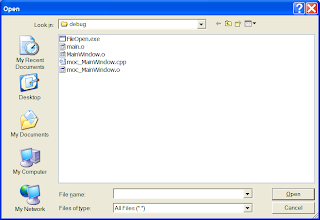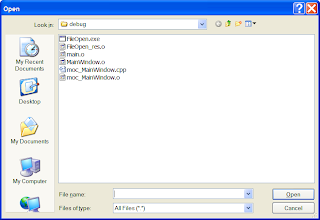<CreatorDir>\bin\qtcdebugger -register
Note that you need to be an Admin user for this to work.
Thanks to Robert Löhning at Nokia for the top tip.
An unofficial blog for all things Qt Creator.




#include <QtGui/QApplication>
#include "mainwindow.h"
int main(int argc, char *argv[])
{
QApplication a(argc, argv);
MainWindow w;
w.show();
return a.exec();
}



The type reported by gdb is 'List'. I could resolve this to 'QList' 'manually', However, doing so would generally impact the debugging helper performance as this would need an additional roundtrip for each item in the Locals&Watchers view (and an roundtrip takes several dozen milliseconds even on fast machines, so we are talking about slowing down each 'step' by a second or so.) You can get a 'nice' display of list2 'manually' by creating a 'Watcher' with expression *('QList'*)&list2 . I understand this is neither obvious nor convenient, but I am also a bit afraid of the general slowdown.So for now I am tempted to leave it as it is.
#include <QString>
#include <QListv
int main(int argc, char *argv[])
{
QCoreApplication a(argc, argv);
QMap<QString, QString> map1;
map1["Hello"] = "World!";
typedef QMap<QString, QString> Map;
Map map2;
map2["Hello"] = "World!";
QList<int> list1;
list1.append(1234);
typedef <int> List;
List list2;
list2.append(1234);
return a.exec();
}
If you stick a breakpoint on the last line the debugger happily displays the contents of map1 and list1, but not map2 and list2 as they have been declared using the typedef. Now, I use the typedef keyword a lot, so this is a PITA, but it's been reported so I'm sure a fix is in the works.